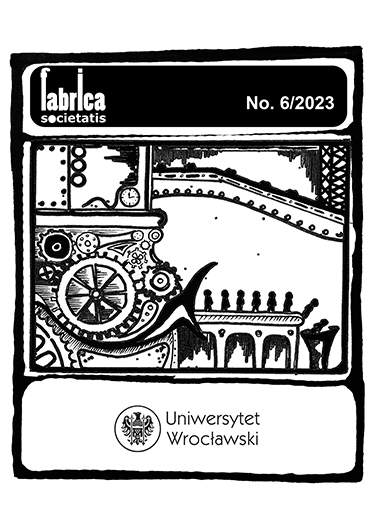

Artykuły

This article explores the role of defining the relationship between the private and public spheres in perceiving the possibility of external intervention in situations of domestic violence. The goal is to identify barriers to the work of institutions that provide support to people affected by violence. The discussion is based on empirical research concerning the conflict and violence in Ukrainian families. The study aimed, i.a., to learn the subjective definitions of privacy and the possibility of external interference in violent situations. The empirical data was collected by means of semi-structured interviews conducted with migrant women from Ukraine; the interviews were carried out in the language of the respondents, who were selected for the study based on purposive sampling. The research results show different attitudes (from negating to accepting) towards undertaking cooperation between the aid institution and the family affected by violence. The identified barriers are cultural and result from the socially shared rules of communication between the home and the world, and the ability to control the rules of home visibility to the outside world; however, they also emerge from ignorance and mistrust towards the institution, which has been shaped by the previous experiences of migrant women in both Ukraine and Poland.
Becker, H.S. (2009). Outsiderzy. Studia z socjologii dewiacji. Tłum. O. Siara. Warszawa: Wydawnictwo Naukowe PWN.
Błaszczyk, M., Dolińska, K., Makaro, J., Pluta, J. (2023). Governance agility in reception of war refugees from Ukraine: The case of Wrocław, Poland. Social Policy Administration 58, p. 189–204.
Dopierała, R. (2013). Prywatność w perspektywie zmiany społecznej. Kraków: NOMOS.
Drozdowski, R., Krajewski, M. (2007). Prywatnie o publicznym, publicznie o prywatnym. Poznań: Wydawnictwo Naukowe Uniwersytetu im. Adama Mickiewicza.
Giza-Poleszczuk, A., Marody, M. (2004). Przemiany więzi społecznych. Warszawa: Wydawnictwo Naukowe Scholar.
Guzy-Steinke, H. (2009). Relacje sąsiedzkie w środowisku lokalnym. W: K. Wojnowski, M. Marcinkowski (red.), O przestrzeni edukacyjnej: chaos, żywioł, ład, parerga. Poznań–Kalisz: Uniwersytet im. Adama Mickiewicza. Wydział Pedagogiczno-Artystyczny, s. 254–263.
Podgórecki, A. (2010). Kontrola społeczna trzeciego stopnia. Prace Instytutu Profilaktyki Społecznej i Resocjalizacji 15, s. 7–20.
Siemaszko, A. (1993). Granice tolerancji. O teoriach zachowań dewiacyjnych. Warszawa: Wydawnictwo Naukowe PWN.
Simmel, G. (2005). Socjologia. Tłum. M. Łukasiewicz. Warszawa: Wydawnictwo Naukowe PWN.
Sztompka, P. (2002). Socjologia. Analiza społeczeństwa. Kraków: Wydawnictwo Znak.
Wilanowska, M. (2020). Przemoc w rodzinie jako społeczne zagrożenie bezpieczeństwa i porządku publicznego. Konteksty Społeczne 1(15), s. 105–123.
Zielińska-Poćwiardowska, I., Sosnowska-Buxton, P. (2023). Przemoc domowa w Polsce: zaproszenie do podjęcia socjologicznej analizy zjawiska, Studia Socjologiczne 2(249), s. 131–154.

This work is licensed under a Creative Commons Attribution-NonCommercial-NoDerivatives 4.0 International License.